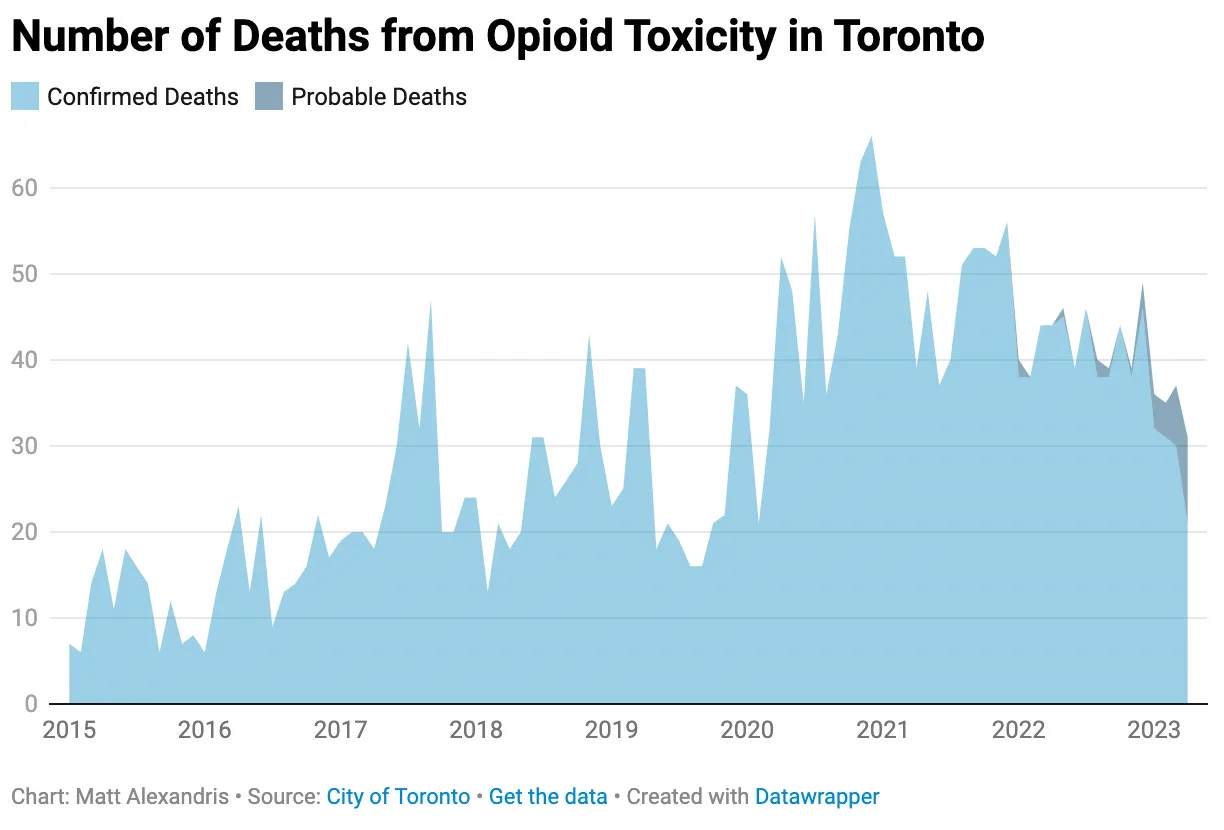Toronto – TPH has consistently advocated for expanded access to a comprehensive range of evidence-based health services including prevention, treatment and harm reduction interventions. TPH remains committed and ready to pursue collaborative approaches to address this critical and urgent health issue.
Shelter system and the drug toxicity crisis
Toronto has also experienced heightened incidents of non-fatal and fatal opioid overdoses within the shelter system. This is mainly due to the increasing toxicity of the unregulated drug supply.
The City’s Integrated Prevention and Harm Reduction Initiative program (iPHARE) is a multi-pronged effort to address opioid-related deaths in Toronto’s shelter system. iPHARE has provided funding to TPH and community agencies to support an enhanced response in priority shelters which are identified based on data on rates of non-fatal overdoses at these sites. Learn more by visiting the City’s iPhare program webpage.
Data shows that between 2022 and 2023, there was an 11 per cent decrease in the number of non-fatal overdoses in shelters, decreasing steadily since its peak in 2021. Non-fatal outcomes are often the result of the quick action and response of shelter staff or other residents intervening to save lives by administering naloxone and oxygen and calling for emergency services. More information on the City’s work to reduce overdoses in homelessness service settings is available on the City’s Overdoses in Homelessness Services Settings webpage.
“By recognizing Overdose Awareness Day, we reaffirm our commitment to addressing the drug toxicity crisis in Toronto. Today is an opportunity to reflect on how we can better prevent overdoses and overdose deaths. Together, let us remember the people who have lost their lives due to overdose and the people in our community who continue their vital work to prevent further overdose in our city.” – Mayor Olivia Chow








